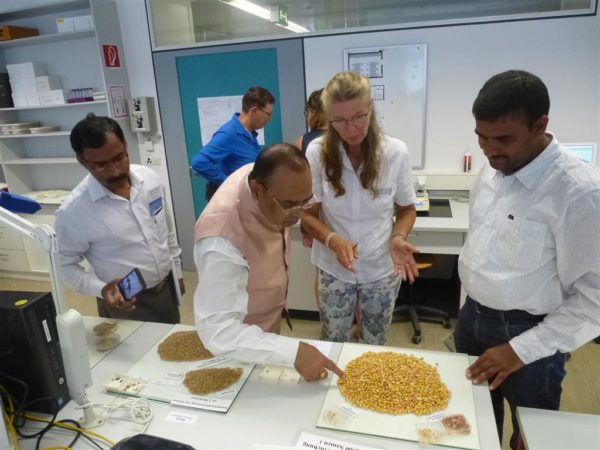Seed Laboratory Issues
In India, the enforcement of the Seeds Act, coincided well with the era of Green Revolution. The Act provided a formal system of seed quality control in the country for the first time. India realized the importance of seed testing during second five-year plan period and the Central Seed Testing Laboratory (CSTL) was established in the erstwhile Botany Division of the IARI, New Delhi in 1955. Thereby, the importance of STLs has been well recognized under the section 4 (2) of the Seeds Act, 1966 which empowers the state Government to establish one or more State Seed Testing Laboratories in the state.
There are about 125 notified Seed Testing Laboratories (STL) in India under the
• State Directorate or Department of Agriculture / Horticulture;
• National or State Seed Corporations;
• State Seed Certification Agencies;
• Public sector cooperatives;
• State Agricultural Universities;
• ICAR institutes;
• KVKs (Farm Science Centres).
However, majority of them are equipped only for performing the primary seed quality testing. It is necessary to equip the STL’s manned with quality human resources with regular upgradation of their knowledge on new updates/techniques and to obtain uniformity in test results. Although several measures have been taken by the government of India to strengthen the STLs in terms of physical infrastructure and manpower and have been providing huge budgets for strengthening the seed quality control system in the country, the status of their functioning still needs further improvement in terms of uniformity and quality human resources. In spite of all these efforts, the desired level of perfection and uniformity in seed testing and quality control has not been achieved yet due to various reasons which are discussed below.
In order to improve the uniformity in results throughout the country, CSTL is acting as referee and guiding force for uniformity of results framing the rules and checking the seed quality in the country. One of the main problems, currently being experienced in India, is the variability in the analysis of results. To achieve uniformity in testing, the CSTL need to publish a set of internationally validated and accepted procedures by updating the ISTA rules every three years for performing each of the seed quality tests.
Monitoring the state seed testing laboratories and providing technical guidance is needed from the state government. Therefore, seriousness is required in the rectification of these variations by the state governments. Further, the state and central auditing committees have to be established.
Most of the states have several seed quality assurance laboratories, however, their operating system and staffing pattern differs from state to state. Some of the newly added components of seed quality such as vigour assessment methods, molecular techniques, ELISA and identification of seed-borne pathogens, sampling and detection of GM seed are not being used in the laboratories. Furthermore, in some of the states, large number of ‘notified’ laboratories exist which are poorly equipped with staff, while in others only 2-4 laboratories are well operated with adequate facilities but are not updated with standard operating procedures as per ISTA or not even able to obtain ISTA accreditation.
The major problems being:
• Lack of adequate facilities of seed testing in many laboratories;
• Capacity building: Seed quality assurance is a systematic and planned procedure for ensuring the genetic, physical and physiological integrity of the seed delivered to farmers and trained stewardship is required in quality assessment;
• Significant variations in seed testing results are common among different laboratories;
• Some of the seed testing laboratories do not maintain and follow SOP for seed testing;
• Official Seed Testing Manual needs revised publication at least once in 10 years;
• Technical Audit of STLs is lacking and region wise referral laboratories may be another option to upgrade laboratories and for capacity building;
• Testing for seed health are not done on a routine basis due to lack of technical proficiency and facilities. Needs to make amendments in the seed law as a routine test;
• Inordinate delays happen in the completion of tests and submission of reports.
Tentative activities of the bilateral project under this topic are during the ongoing phase:
• Support to improve the concept and standards of the public seed laboratories;
• Exchange experience on the system of the public seed laboratories;
• Development of capacity building programme on seed testing.
